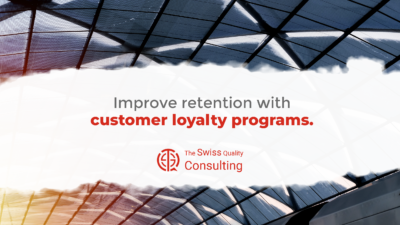Honesty and Loyalty in Business: An Essential Foundation
Success in the dynamic landscape of business is not solely dependent on strategies, market trends, or financial prowess. At its core, success hinges on the strength of relationships, and two fundamental pillars supporting these relationships are honesty and loyalty. This article delves into the significance of fostering an environment where honesty and loyalty serve as key drivers of success for business executives, mid-level managers, and entrepreneurs.
Honesty as a Catalyst for Effective Communication
Imagine a foundation built on shifting sand – unstable, unreliable, and ready to crumble. That’s what business relationships become without honest communication. In stark contrast, truthfulness forms the bedrock of trust, fostering an environment where collaboration thrives and success reigns. When business executives prioritize honesty, they unlock a treasure trove of benefits:
Transparency Breeds Clarity: Honest communication shines a light on information, goals, and expectations, leaving no room for ambiguity or misunderstandings. Everyone operates with clear direction, minimizing confusion and wasted effort.
Confidence Fuels Collaboration: When team members feel safe sharing their ideas and concerns, regardless of whether they align with leadership’s initial thoughts, it fosters a culture of open dialogue and collaboration. Diverse perspectives come to the table, enriching decision-making and innovation.
Feedback Becomes a Gift: In an honest environment, constructive criticism is welcomed, not feared. Team members readily offer feedback, knowing it will be received with openness and used to improve individual and organizational performance.
Accountability Strengthens Trust: When leaders demonstrate honesty in their actions and communication, they set the standard for ethical conduct. This fosters trust at all levels, creating a foundation for a strong and resilient team.
But honesty isn’t just about avoiding lies; it’s about:
Communicating proactively: Sharing both good and bad news promptly builds trust and demonstrates respect for stakeholders.
Being transparent about challenges: Admitting mistakes or uncertainties fosters empathy and allows for collaborative problem-solving.
Giving and receiving feedback constructively: Focus on specific behaviors and offer solutions, fostering growth and mutual respect.
Building Trust through Unwavering Honesty
Trust is a currency that holds immense value in the business world. Honesty is the principal contributor to building and maintaining trust. When individuals within an organization consistently demonstrate honesty, trust permeates through teams, fostering an environment where collaboration thrives, and collective efforts are propelled toward shared goals.
Loyalty as a Pillar of Stability
In the fast-paced realm of business, stability is often elusive. However, loyalty provides a stabilizing force that contributes to long-term success. When loyalty is reciprocated between business partners, team members, and clients, relationships endure challenges and setbacks, creating a foundation for sustained growth.
The Ripple Effect of Loyalty
Loyalty is contagious. When leaders prioritize loyalty, it emanates throughout the organization. Team members become more committed, clients become long-term partners, and the entire business ecosystem benefits from the ripple effect of loyalty. This interconnected loyalty forms a resilient network that withstands the tests of time and industry changes.
Leading by Example
Leaders set the tone for organizational culture. By embodying the principles of honesty and loyalty, leaders establish a precedent for others to follow. When leaders demonstrate a commitment to truthfulness and stand by their teams through thick and thin, they inspire a culture where these values become ingrained in the organizational DNA.
Fostering a Culture of Openness
For honesty and loyalty to flourish, leaders must actively foster a culture of openness. This involves encouraging open communication channels, providing platforms for feedback, and valuing transparency in decision-making. A culture of openness ensures that everyone in the organization feels heard and respected.
Enhanced Problem-Solving and Innovation
When honesty and loyalty permeate an organization, problem-solving becomes a collective effort. Team members feel empowered to voice their opinions, contributing to a diversity of thought that fuels innovation. Honest feedback, even when critical, is embraced as an opportunity for growth, leading to continuous improvement.
Long-Term Partnerships and Business Success
Business success is not merely measured in short-term gains but in the sustainability of relationships and partnerships. Honest and loyal relationships with clients, collaborators, and team members lay the groundwork for enduring success. Long-term partnerships built on trust and commitment result in a robust network that withstands market fluctuations.
Conclusion: Honesty and Loyalty as the Cornerstones of Lasting Success
In the complex tapestry of business, where uncertainties abound, honesty and loyalty emerge as unwavering constants. Business executives, mid-level managers, and entrepreneurs who prioritize these values create an environment where relationships flourish, and success becomes not only attainable but sustainable. The journey to success is paved with open communication, unwavering trust, and enduring loyalty.
#BusinessRelationships #SuccessPrinciples #HonestyAndLoyalty























